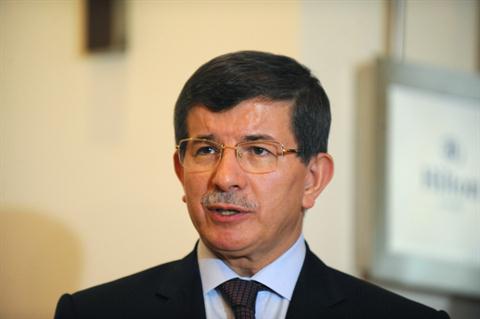CAIRO: The National Sports Council recently issued an executive statute for sports clubs in Egypt, kicking up a storm of controversy among some sports clubs officials. Others have welcomed the new rules with open arms.
The most contentious clauses relate to the restructuring of the board of directors and funding for clubs.
According to Sayed Gohar, the president of the youth committee in the People’s Assembly (PA), the executive statute should have been discussed and passed by the PA to become a law by now, but it has been delayed due to the backlog of laws currently under discussion, which have priority.
For the time being, the National Sports Council resorted to issuing an executive statute of the law, especially that major clubs would be holding their board elections this summer – namely Zamalek and Ismaili.
The new structure of the board of directors will comprise of a president alongside six board members and two appointed members – at least one of which has to be female – as well as a financial and a general manager, working on a full-time basis with a monthly salary. If the president is unavailable, one of the board members is appointed to act in his or her place.
The 1975 sports law stipulated a board made up of a president, vice president, treasurer, five board members, two members under the age of 30 and two appointed members.
It’s about time
Omar Haridi, Zamalek’s board member, supports the new structure.
“Decreasing the number of board members would definitely enhance the efficiency of the board to set out plans and implement those plans in a well-structured manner, Haridi told Daily News Egypt.
“In that sense, I favor the removal of the vice president and treasurer posts as it is a step towards an efficient and a competent administration, which is necessary in professional sports today, Haridi added.
Haridi noted that in the last few years, there have been conflicts between presidents and vice presidents which had a negative impact on the administrative competence of the club. Furthermore, having treasurers work on a part-time basis led to financial problems, which in many cases caused the board to dissolve.
Kamal Darwish, Zamalek’s former president, said that these two posts should have been eliminated a long time ago. The vice president, who in most cases served as the head of the executive board, used to try to manipulate executive board members to lobby against the president and the rest of the board, Darwish said. In many times, this also led to the disintegration of the board.
“The appointment of a financial manager on a full-time basis instead of a part-time treasurer is vital for a club that runs more than 20 sports in addition to a variety of social activities, Darwish said.
Missing roles
On the other hand, Mahmoud Bagneid, Al Ahly’s current treasurer, opposed the introduction of the clause, saying that the roles of vice president and treasurer are important.
Bagneid said that having a treasurer is necessary for the efficient management of financial resources. It has proved to be successful in the last four years, he said, “when we managed to generate unprecedented revenues.
He emphasized that there is already a financial department operating on a daily basis to ensure that all financial obligations are met. Bagneid also said that the role of vice president is essential, and the person in this post is delegated with a number of important duties, such as heading the executive board.
The elimination of those two posts have already had an impact on pre-election campaigning, as a number of well-known figures had announced their intentions to nominate themselves in the upcoming elections of Ahly and Zamalek clubs, based on the availability of certain posts.
Close sources to Mahmoud El Khatib, Al Ahly’s current vice president, said it was unclear whether El Khatib would nominate himself for presidency or for the position of a board member.
El Khatib served as treasurer from 2000 to 2004, and as vice president from 2004 to present. Some say it’s unlikely that the once-star-footballer would nominate himself as a board member after holding other superior positions.
Azmy Megahed, who served as a board member in Zamalek for three terms, said he had intended to nominate himself for vice president, but will now be a candidate for the board.
“There were two candidates who were set to be nominated for the vice president and the treasurer posts, however after the release of the executive statute, they refused to nominate themselves as board members, Karim Darwish said.
The two seats designated for the under-30 board members have also been met with a range of opinions.
Ahmed Tawfiq Hafez, Zamlek’s current under-30 board member, supports the clause because the majority of the under-30 members failed to add any sort of value, he said.
As for El Amery Farouq, currently an Al Ahly board member who served the previous term as an under-30 board member, said this clause will undermine the process of providing the sports field with promising young leaders.
“There are a lot of names which come to my mind who have positively contributed to their clubs, such as Yasser Idrees, Khaled Lateef in Zamalek club, Mohamed Hamam in the Shooting club and Ahmed Aboul Fotouh in Gezira club. All of them have made a great job as under-30 board members, and they were all elected as members in the elections that followed, Farouq told Daily News Egypt.
Show me the money
Clause 91 of the executive statute has given the clubs the rights to generate their own revenues by selling advertising rights and allowing clubs to apply for bank loans of up to 40 percent of the club revenues. At the same time, it has dubbed sports betting a source of illegal funding. This news has not been welcomed by officials in sports clubs.
Mahmoud El Shami, the president of Baladeyat El Mahalla Sports Club, said that clubs particularly in the delta governorates suffer from lack of financial resources – unlike Ahly or Zamalek.
“I’ve been waiting for that clause to be approved for a long time, I regard sports nowadays as an industry, its operational costs are soaring, and we need a sustainable source of funding rather than depending on governmental aides.
“As for betting, it is banned in Islam and so it is wise to regard it as illegal, Shami told Daily News Egypt.
On the other hand, Ibrahim Ashour, Ismaili’s former president, opposed the decision. He says there are a number of television advertisements that ask people to predict the outcome of the matches. In return, winners receive cash prizes. “Isn’t that considered betting? he asked.
Ashour said this kind of betting can be regulated so that people can call the club, make their predictions, and the club can receive a portion of the proceeds from the cost of the call. He argues that this would be better than depending on donations and money from the government, which are not sustainable ways to generate funds and only meet the club’s financial needs for a short period of time.s

